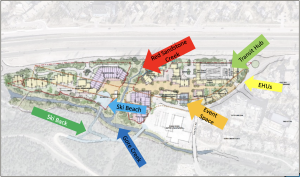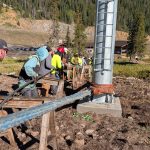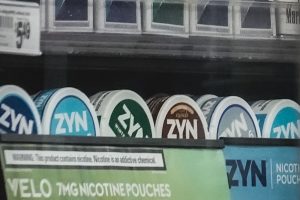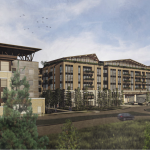Both lawsuits against Vail Resorts for alleged labor violations currently waiting on rulings
Plaintiffs say justice delayed is justice denied

John LaConte/Vail Daily
Vail Resorts resolved one major lawsuit this week, agreeing to drop all appeals against a ruling that said the town of Vail could seize a parcel of the company’s land in East Vail.
But several other lawsuits against the company remain ongoing, including one in federal court in Colorado, and another in state court in California.
Both of those cases are class-action lawsuits alleging more than $100 million in Fair Labor Standards Act violations, and both have been argued, with all briefs filed, as of September.
The latest action occurred in September in California, with plaintiffs making arguments to the California state court of appeals. Those plaintiffs filed a motion for the court to vacate an August 2022 judgement that said a $13.1 million settlement in that case should be paid by Vail Resorts, divided up amongst a class of tens of thousands of employees that were subject to alleged unfair labor practices including hours unpaid, necessary equipment and expenses not reimbursed, and other violations.
The motion to vacate was combined with a separate action to intervene in the case, with the plaintiffs saying the other court case, running simultaneously in federal court in Colorado, should “enjoin,” or put a permanent halt to the California settlement, allowing their case in federal court in Colorado to proceed.

Support Local Journalism
Both actions were argued in front of a California state court of appeals on Sept. 24. While the hearings were private — not open to media or the general public — previous statements made by the plaintiffs argued that the settlement was insufficient, offering “pennies on the dollar,” and that the California state court was not the proper forum for a large case against a multinational corporation accused of labor violations in 16 different states. They say the federal court based in Colorado, where Vail Resorts is headquartered, is a more appropriate forum for such action.
One person who objected to the settlement in the California case, ski instructor Bryan Griffith, said that his job required him to be present at the resort for four to seven hours, but sometimes he would only be paid for one hour, “the one single hour that I was in a lesson.”
Griffith said his settlement offer was $7.46 — less than the $9 in fees he paid to the court in filing his objection to the settlement agreement. Griffith said the number was 0.25% of his actual damages.
The plaintiffs who made similar claims about the $13.1 million settlement being insufficient to cover the vast amount of damages now await rulings from a panel of 8 to 10 judges in the California appeals court on the actions to vacate the settlement judgement and intervene in the case.
Meanwhile, in Colorado, the federal case was put on hold by the 10th Circuit Court of Appeals while the California case was being worked out. The plaintiffs in the federal case in Colorado have appealed the decision to stay the case.
A brief filed Aug. 22 argues that the plaintiffs in that case, which include a different class of employees who opted out of the California case, have been subject to a delay in justice as their case has been on hold for years. The essence of those plaintiffs’ arguments is the legal maxim known as “Justice delayed is justice denied.”
The Aug. 22 brief was the final brief filed in the case, meaning the case is now fully briefed and awaiting a decision from the judge. Waiting on the judge’s decision itself is part of the argument the plaintiffs in that case are making, citing a decision from the Ninth Circuit Court of Appeals.
The Ninth Circuit opinion says “such stays create a danger of denying justice by delay,” according to the Aug. 22 brief, raising a risk “that witnesses’ memories will fade and evidence will become stale,” or that plaintiffs “face irreparable harm during the time that their suits are on ice.”











